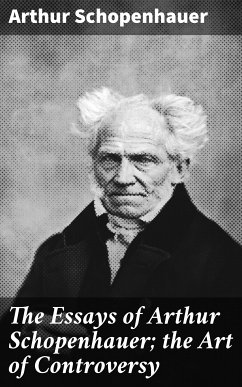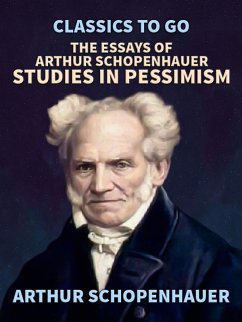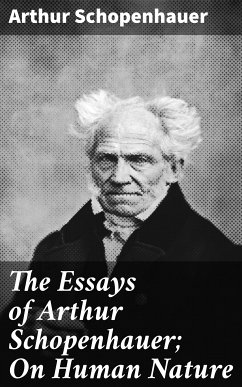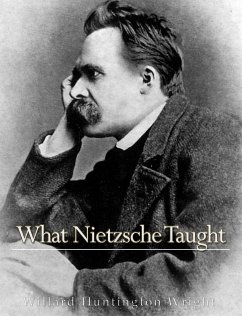
The Essays of Arthur Schopenhauer; Studies in Pessimism (eBook, ePUB)
Enriched edition. Exploring Existential Pessimism: Insights on Human Suffering and Desire
Kommentar: Merriweather, Fiona / Redaktion: Good Press / Übersetzer: Saunders, T. Bailey
Versandkostenfrei!
Sofort per Download lieferbar
1,99 €
inkl. MwSt.
Weitere Ausgaben:

PAYBACK Punkte
0 °P sammeln!
In "The Essays of Arthur Schopenhauer; Studies in Pessimism," Schopenhauer expounds on his philosophical doctrine grounded in a profound pessimistic view of existence. The essays, characterized by their incisive prose and rigorous argumentation, delve into themes such as the nature of suffering, the human condition, and the transient pleasure of life. Written during the 19th century, a time marked by burgeoning existential thought, Schopenhauer's work resonates with Romanticism while also contrasting with the optimistic philosophies of his contemporaries. His unique blend of metaphysical inqui...
In "The Essays of Arthur Schopenhauer; Studies in Pessimism," Schopenhauer expounds on his philosophical doctrine grounded in a profound pessimistic view of existence. The essays, characterized by their incisive prose and rigorous argumentation, delve into themes such as the nature of suffering, the human condition, and the transient pleasure of life. Written during the 19th century, a time marked by burgeoning existential thought, Schopenhauer's work resonates with Romanticism while also contrasting with the optimistic philosophies of his contemporaries. His unique blend of metaphysical inquiry and personal reflection invites readers to confront the stark realities of life, rendering a striking commentary on human desires and the inevitable disappointments that accompany them. Arthur Schopenhauer (1788-1860), often recognized as one of the most influential philosophers, was heavily shaped by his personal experiences and the prevailing philosophies of his time, including Kantian ideals and Eastern thought, particularly Buddhism. Schopenhauer's own struggles with despair and isolation fueled his philosophical explorations, leading to a pronounced conviction in the futility of human striving and the omnipresence of suffering, as depicted in these essays. His bold rejection of idealism has positioned him as a precursor to existentialism and a guiding figure for later thinkers. For those seeking to explore the depths of human experience and the stark truths of existence, "The Essays of Arthur Schopenhauer; Studies in Pessimism" is a compelling read. It challenges readers to engage with profound philosophical questions while offering a candid exploration of life's challenges. Schopenhauer's eloquence invites introspection, making this collection an essential work for anyone interested in the complexities of pessimistic philosophy. In this enriched edition, we have carefully created added value for your reading experience: - A comprehensive Introduction outlines these selected works' unifying features, themes, or stylistic evolutions. - The Author Biography highlights personal milestones and literary influences that shape the entire body of writing. - A Historical Context section situates the works in their broader era-social currents, cultural trends, and key events that underpin their creation. - A concise Synopsis (Selection) offers an accessible overview of the included texts, helping readers navigate plotlines and main ideas without revealing critical twists. - A unified Analysis examines recurring motifs and stylistic hallmarks across the collection, tying the stories together while spotlighting the different work's strengths. - Reflection questions inspire deeper contemplation of the author's overarching message, inviting readers to draw connections among different texts and relate them to modern contexts. - Lastly, our hand-picked Memorable Quotes distill pivotal lines and turning points, serving as touchstones for the collection's central themes.
Dieser Download kann aus rechtlichen Gründen nur mit Rechnungsadresse in A, B, BG, CY, CZ, D, DK, EW, E, FIN, F, GR, H, IRL, I, LT, L, LR, M, NL, PL, P, R, S, SLO, SK ausgeliefert werden.













